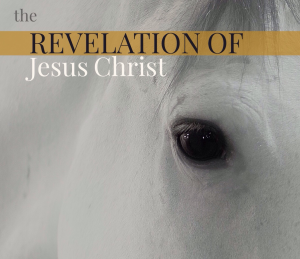Peter continues to lay out the reaction to the “…good news that was preached to you.” As we’ve noted before, what we’ve heard and what we believe impact what we do. Peter says this good news causes us to put away all evil, to speak only true things, whatever may result in them. I’ve found that’s a pretty good bell-weather on where I’m at in obeying Jesus, my willingness to tell the truth no matter the consequences. Watch yourselves, the minute you start couching stuff in half-truths, silence or flat out deceit, there are bigger things at risk in your life. Honesty is refreshing, necessary and the foundation of true freedom. Examine this directly in your life, anything short of integrity in this area is bondage and Jesus has more for you to do than shackle yourself yourself by doing dishonorable things to try and protect your honor (yes, it’s as silly as it sounds).
Peter uses the example of an infant, who will reject any other food except that which is pure and meant for it. Through that, they grow healthy into who they are meant to be. Similarly, as we pursue pure spiritual milk (Scripture, most likely), we grow healthy into the salvation that we have been given. Don’t get too caught up in this example, sometimes we read an implication that you “grow” into salvation as in you demonstrate that you’ve earned it. That’s not the case. It’s basically a connection of keeping what you take in pure so that you get the full freedom Jesus has given you. You take in less than that and it will result in you growing up and not getting the fullness of what Jesus died for. Don’t do that.
Then we get a cool reminder of who Jesus is and who we are in light of that. Jesus is a living stone, the foundation of a Kingdom built upon who He is and what He has done. In Him, we are a spiritual house (the new Temple, if you will. God’s presence used to be in the Holy of Holies in the Temple, it was the place where heaven and earth literally intersected. Now, the Spirit lives in us, we are where heaven and earth intersect.) And, we offer spiritual sacrifices (you can twist this all you want, but the sacrifice is ultimately your works. Think Romans 12 where Paul says we are to offer our bodies as a living sacrifice. You’re taking your life and offering it to God as his to do with as He pleases. If that’s not appealing to you, you’re not ready for Kingdom living.)
The quote is from Isaiah 28 (read at least part of that, it’s fierce. Folk making covenants with death and Sheol like a bunch of goons and God pointing out how dumb that was to do.) In either case, the promise there, as well as here, was that God sets things right and rebuilds with a cornerstone that is true and right and those who believe in Him will not be put to shame, unlike those folks who have gone into cahoots with death.
Peter reasserts here that the honor is for you who believe (keep this in context, it’s important to not allow some of the words that follow drive you off a cliff.) Then he switches to what happens to those who don’t believe. They reject the cornerstone and the denial of that truth starts jacking with their lives. They disobey because they do not believe, as was always going to be the case. Don’t think “destiny” as in “God made sure it would happen this way because he doesn’t like these folks.” Think of it as a natural consequence, like the phrase, “those who ignore the past are destined to repeat it.” Because of something they are doing (not believing, rejecting the cornerstone), they disobey the word (obviously because they didn’t believe it in the first place).
But those who do believe are destined for other things. They are chosen to be a royal priesthood, a nation set apart from all else, belonging to God. If you didn’t know you were a priest, congratulations! Your Father gives good gifts and loves His children. Now, go forth in obedience, your majesty. And don’t forget what God has done for you. He has given you mercy and a fresh identity as His people, His church.
And…this Bud’s for you. Back to “how then shall we live?”, Peter says that us sojourners and exiles (from where? Earth. We’re Kingdom folk now, as soon as you commit to King Jesus you are now an alien in a foreign land), need to abstain from the passions of the flesh which wage war against your soul. That’s not soft language, boys, and it ought not be. There is a war against your soul being waged on computer screens, mobile phones, magazines, your average beach, loose commitments, false promises, low-cut tops showing cleavage that doesn’t belong to you, and sundry other temptations and distractions that are meant to make you feel good while they stab you in the back, take your wallet and spit on your family. This is a war, fellas, and we often fight it with all the tenacity of a co-ed ping pong tournament where the loser buys a couple rounds of Milwaukee’s Best for the winner. If you’re not married to her, the sight or use of her parts doesn’t belong to you, even if she’s offering it, giving the image away for free, or making it easy to find on the internet. Gotta do things God’s way (remember, they’re His way for a reason, because He loves you and knows what’s best.) I don’t know a man who doesn’t struggle with this in some way or another, me included. Watch out for one another in this, be loving but be helpful, don’t forget we’re in a war here.
What’s the impact? Paul talks about others but Peter is aware here of how those who aren’t currently in God’s Kingdom will see it (because what you do matters.) Peter just got done laying the foundation of those who are holy, set apart for God, and their job is to act like it, be good examples, shine God’s goodness through in what you do.
The hard words continue. Peter says to not act like a bunch of anarchist apes when it comes to worldly powers and authorities. You follow Jesus, show respect to those in authority, and do good. The Lord seems to think that doing good will silence ignorant, foolish people, and it seems prudent to agree with Him on the matter. (This happened with Jesus, yes? One of the same soldiers who beat him on the way to the cross acknowledged that He was indeed the Son of God at the foot of the cross. His senseless, foolish talk and actions were silenced by the good Jesus has done and the way he handled himself.)
Tattoo option #2: Live as people who are free, not using your freedom as a cover-up for evil, but living as servants of God. Honor everyone. Love the brotherhood. Fear God. Honor the emperor. This stuff is so simple. God likes pure things. Live free for freedom’s sake, not as a facade so you can be shackled to sin. Be servants of God, do as He asks, for your joy, His glory and the benefit of others. Simple stuff. There’s no loophole, trapdoor or excuse; just do the thing and live in freedom.
Peter, deciding to put every possible point of contention in the same chapter, Peter addresses slaves and masters. Although not the same as slavery in America’s history, masters often mistreated those who worked for them (think indentured servants for a loose understanding of the arrangement, see study on 1 Timothy 6 for additional information.) Even so, Peter says to be faithful in the means, Do good even to those who do not do good to you. This has kind of been the theme here, God’s people staying faithful and true as an example to a blind and sinful world. It impacts Gentiles (non-believers), the emperor and his top man, as well as slave masters. Perseverance and persistence in the face of evil is where good shines the brightest.
And Jesus was the example. Jesus’ purity was so stark against the sinfulness that put him on the cross; the evil acts and treatment that physically made it happen. He left us an example that we may follow in his steps. This is radical trust in God to love those who hate you, serve those who mistreat you, be an example for good even when harsh words, violence, and other retaliations seem justified. Those are all reasonable in this world. But we’re Kingdom citizens, that’s not how Jesus fights so it’s not how we fight. Peter reiterates here that Jesus didn’t respond wrongly because he trusted himself to him who judges justly. When we take all that into our own hands, we basically tell God that we don’t trust that he’ll handle the situation rightly so we’re going to do the what needs to be done and yell at the guy who made us angry or puncture his car tires or cut the Mediacom cable on the outside of his house so he loses his 200 channels of crapola. We don’t do that stuff (ah hem, you know, anymore).
All this because…we’ve been healed. We were once like everyone else, but Jesus has sacrificed and served us that we may return to the good and perfect care of our Shepherd, the one who protects and keeps our souls. Jesus. And the guy that made you angry? He can have that, too. And you want it for him (start praying for him, you’ll find that you’re much more gracious with people when you’re praying for them.)



